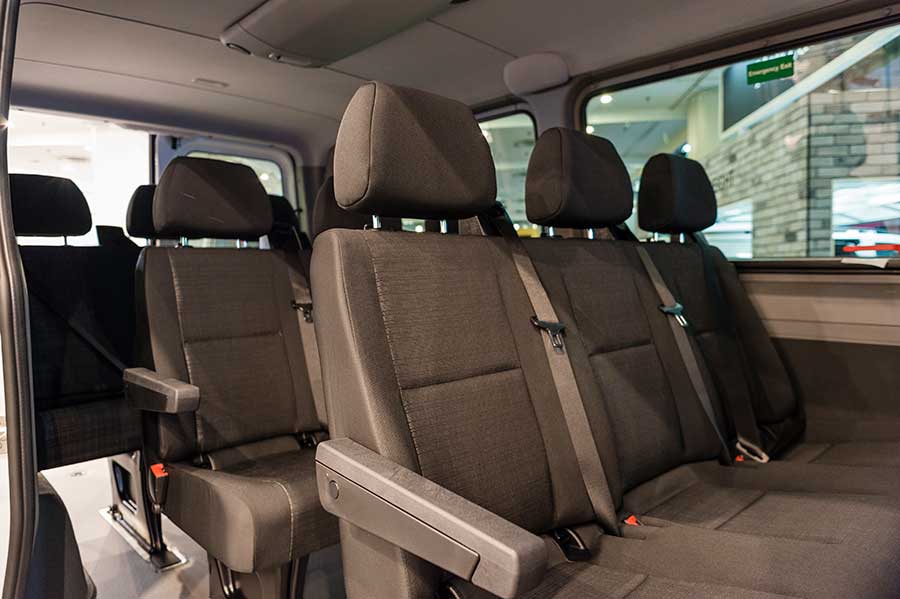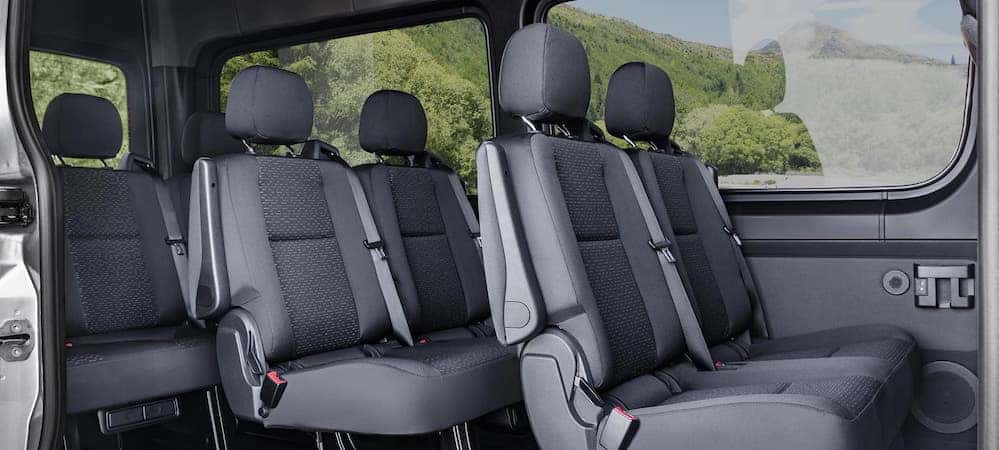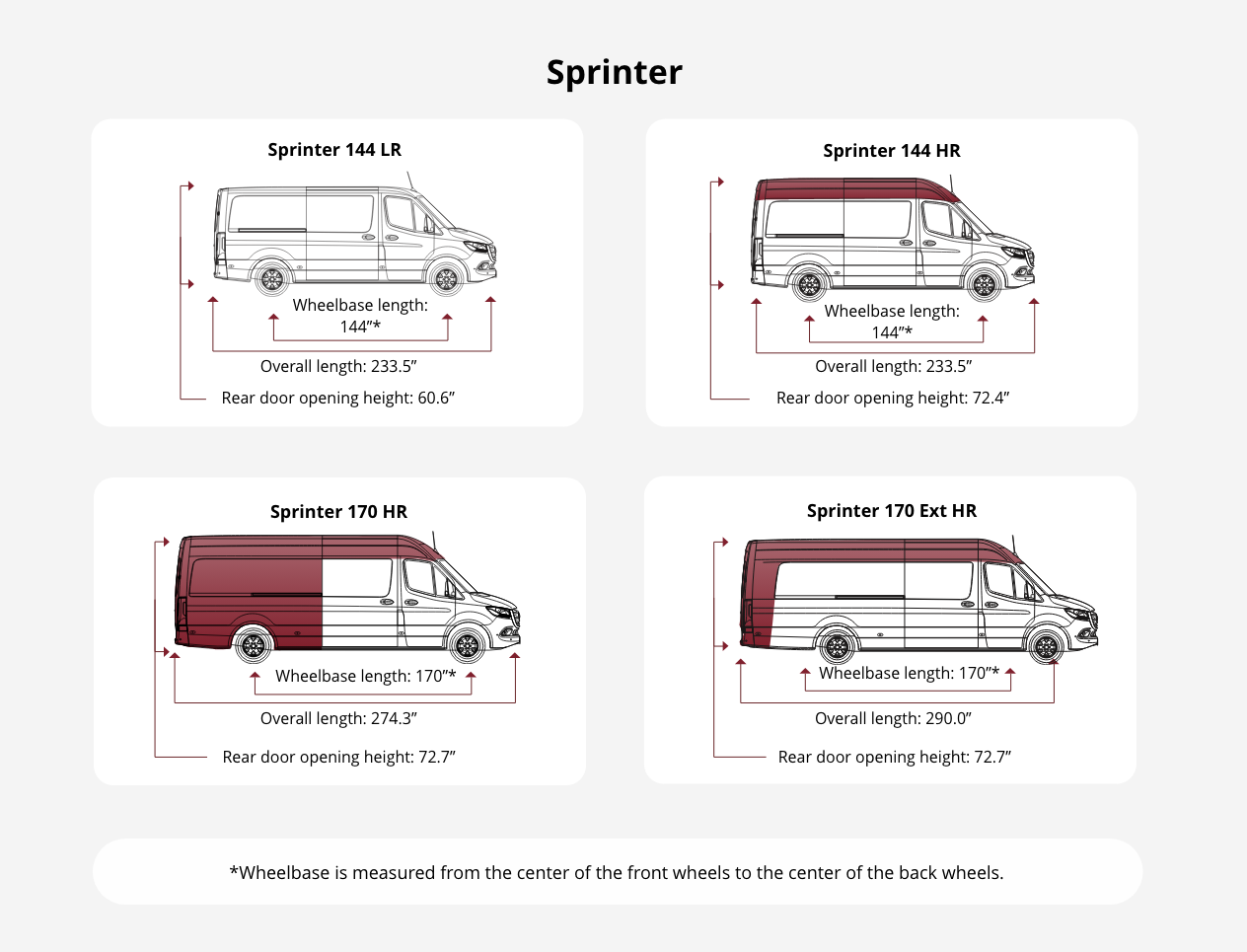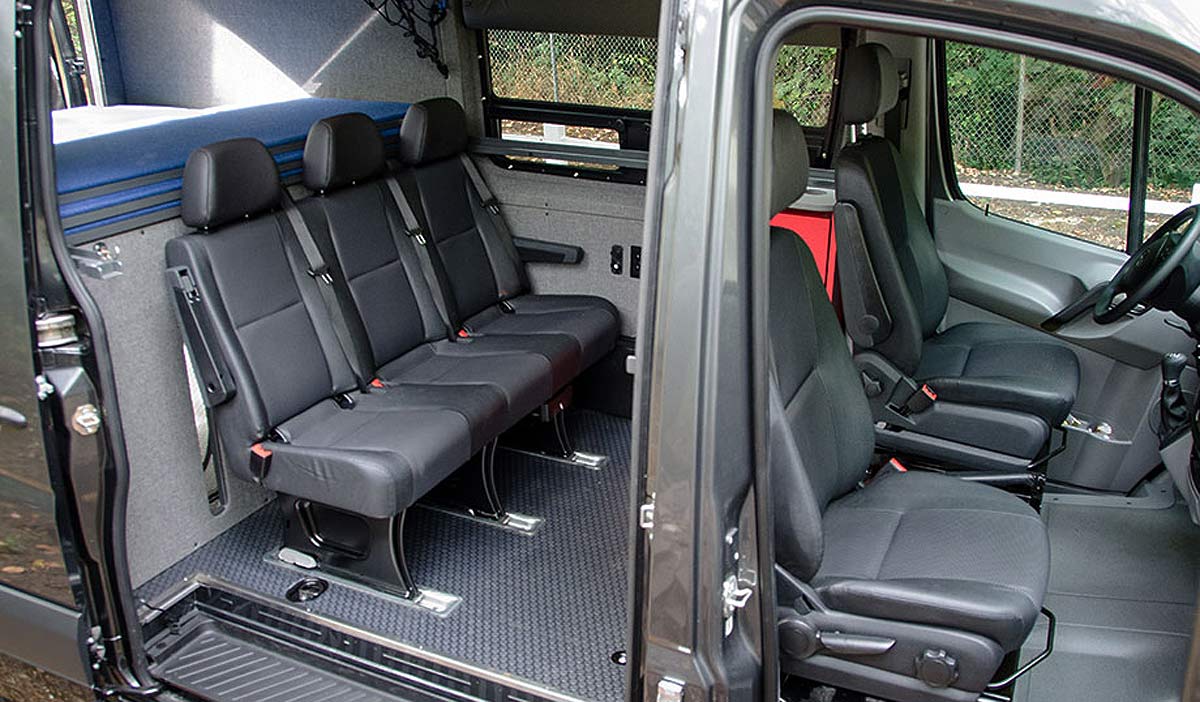How Many People Can Fit In A Sprinter Van

The question of how many people can squeeze into a Sprinter van might seem like a simple math problem, but it's laden with legal implications, safety concerns, and variations depending on the van's configuration. Overcrowding a vehicle can lead to severe consequences, jeopardizing passenger safety and violating transportation laws. This article delves into the complexities of passenger capacity in Sprinter vans, examining different models, legal restrictions, and crucial safety considerations.
At its core, determining the legal and safe passenger capacity of a Sprinter van is multifaceted. It hinges on the specific van model, its seating configuration as determined by the manufacturer, and stringent adherence to local and federal transportation regulations. Beyond the numbers, safety standards dictate how those occupants should be seated and secured.
Sprinter Van Models and Seating Configurations
Sprinter vans aren't a one-size-fits-all solution. Mercedes-Benz offers various models, each with distinct dimensions and intended uses. These range from cargo vans to passenger vans designed explicitly for transporting people.
Passenger vans typically come in configurations that can accommodate anywhere from 12 to 15 passengers, including the driver. However, cargo vans, often converted for passenger transport, usually lack factory-installed seating and safety features, raising significant safety and legal concerns.
Legal Restrictions and Regulations
Federal and state regulations play a pivotal role in determining the legal passenger capacity. These regulations are designed to ensure passenger safety and prevent overcrowding. The National Highway Traffic Safety Administration (NHTSA) sets federal standards for vehicle safety, including seating and occupant protection.
State laws often mirror or build upon these federal guidelines, specifying requirements for seatbelts, child safety seats, and overall vehicle safety inspections. Violating these regulations can result in hefty fines, vehicle impoundment, and even criminal charges in extreme cases.
Safety Considerations: Beyond the Numbers
Even if a van can physically fit a certain number of people, safety should always be the top priority. Overcrowding impacts the vehicle's handling and braking capabilities, increasing the risk of accidents. Properly secured seating with functional seatbelts is vital for minimizing injuries in the event of a collision.
Weight distribution is another crucial factor. Overloading a van or unevenly distributing weight can compromise its stability, particularly during sharp turns or emergency maneuvers. Emergency exits must also be readily accessible and unobstructed, a consideration often overlooked when maximizing passenger count.
The Role of Conversions and Aftermarket Modifications
Many individuals and businesses opt to convert cargo Sprinter vans into passenger vehicles. While these conversions can be cost-effective, they must adhere to strict safety standards. Seats should be professionally installed and securely anchored to the vehicle's frame, meeting or exceeding NHTSA guidelines.
Electrical and ventilation systems must also be properly installed and inspected to prevent hazards. Failing to meet these standards can render the van unsafe and illegal for passenger transport.
"Converting a cargo van for passenger use requires careful planning and adherence to safety regulations," says John Smith, a transportation safety expert. "Cutting corners can have devastating consequences."
Expert Opinions and Industry Standards
Transportation safety experts emphasize the importance of erring on the side of caution when it comes to passenger capacity. They recommend consulting with qualified professionals to determine the safe and legal seating configuration for any converted Sprinter van.
Industry organizations like the Recreational Vehicle Industry Association (RVIA) offer guidelines and certifications for van conversions, ensuring that they meet established safety standards. Seeking RVIA certification provides an added layer of assurance for both passengers and operators.
The Future of Passenger Van Regulations
As Sprinter vans become increasingly popular for passenger transport, regulatory bodies are likely to intensify their scrutiny. Stricter enforcement of existing laws and the potential for new regulations are on the horizon. Advancements in vehicle technology, such as electronic stability control and advanced driver-assistance systems, are also expected to play a role in enhancing passenger safety.
Consumers and businesses alike should stay informed about the latest regulations and safety recommendations to ensure compliance and, above all, prioritize the well-being of their passengers. Ignoring these factors could lead to legal repercussions and, more importantly, preventable tragedies.


















